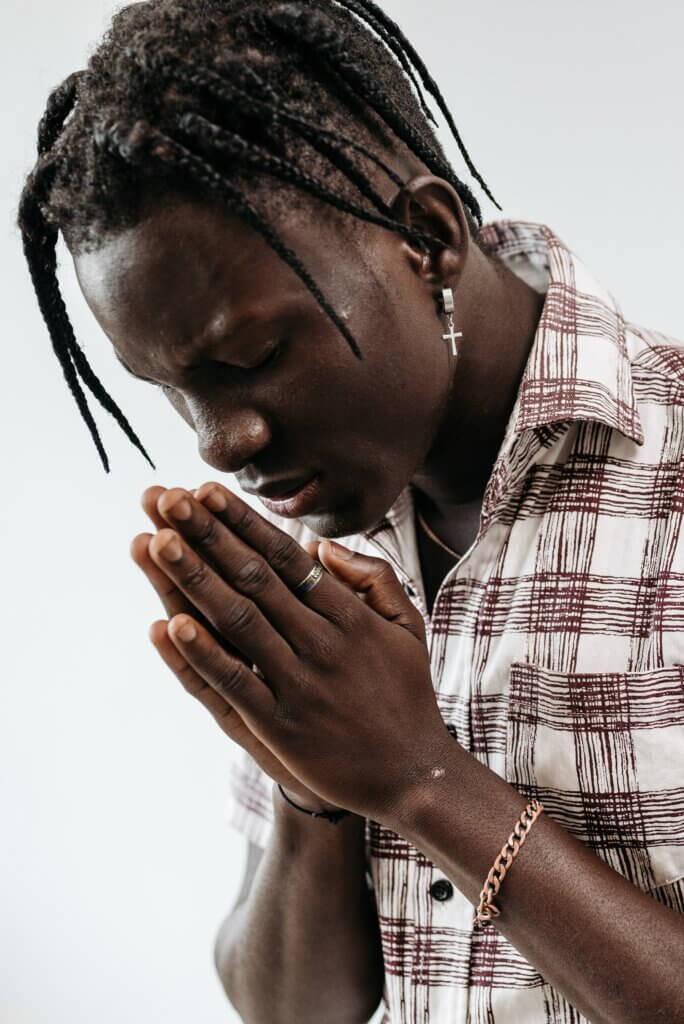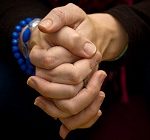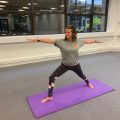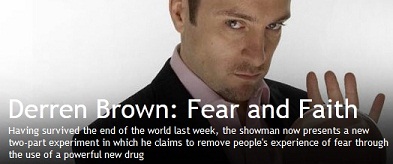Our culture in these modern times is moving further and further away from religion. Atheism or football fanaticism are probably the most popular cults to follow these days. We’re all busy, things change, fast, and we all race through life trying to find our way; the old fashioned teachings of the bible seem a long long way away from reality.

Whatever you believe, or whether you believe in nothing at all, this recent study in Natural News made me really think. Entitled “Prayer proven to improve health of test subjects”, it explores various different studies where prayer was used to varying degrees to try to improve the health of patients.
In one case researchers studied Pentecostal Christian faith healing groups in Mozambique and Brazil. The patients knew they were being prayed for and in fact, hands were laid upon them. Physical contact, or ‘proximal prayer’ is widely held to be the most effective form of prayer in pentecostal churches. The changes and improvements seen in some of the patients were felt to be far more successful than hypnosis and other suggestive therapies.
Could this just be the power of positive thinking? Just knowing someone cares enough to spend time praying for, and with you, could be very powerful, and if the people in the church also held strong religious beliefs then it would clearly give then solace and boost their morale. They would believe it could and would work. Would this work if atheists and non-believers were prayed for in the same way? I suspect not.
So what about prayer from a distance, when the recipient of prayer is unaware they are being prayed for? “One remarkable study of prayer was performed by Randolph Byrd, M.D., who studied 393 coronary-care patients over a ten-month period,” writes Dharma Singh Khalsa in Brain Longevity.
These patients didn’t know they were involved in any such study, they had no idea that a prayer group was praying for any of them. The doctors and nurses involved in caring for the patients also didn’t know which of them was being prayed for. Half of the patients were prayed for each day by the prayer group, and the other half were not. The results showed that the patients who were being prayed for improved more than those who were not. Just a coincidence? or does this prove the power of prayer?
When people feel really ill they often feel that they will try anything to help them get better and turn to alternative medicine and perhaps religion for relief and support. Some swear by the healing powers of reiki, hypnosis and acupuncture, yet we can’t prove why these methods can actually help. When someones’ health improves there are always a myriad of reasons or causes which could be attributed to the improvement. Some people try these alternatives and see no improvement but is that just because they enter into the treatment with a sceptical suspicion, and so don’t give it a chance? Doctors are now using acupuncture to treat joint and back problems with huge success.
I found another article called “Can prayer heal people?” on the How Stuff Works website which talks about various studies comparing the health of those who have a faith and believe in a God and those who don’t. People with strong beliefs can often overcome illness and improve against all odds, but is this also because they are naturally more positive in their outlook and are often more healthy due to cleaner living?
According to a study at the University of Rochester, prayer is used as part of their treatment by as many as 85% of people who are ill or suffering from disease; more than hypnosis, vitamins, herbal medicine or yoga etc. If it helps people what’s the harm? Is there any harm in reaching out to someone or something that science can’t prove is real?
In the bible God does not dismiss medicine, it’s a great aid to health and well-being and one that God has intended to be, so we should be thankful for them, but the main issue is that we put our faith in God and the focus of our hope on Him and not in anything else. So whilst we give ourselves to the mercy of medicine and doctors, our hearts should be hoping and believing that it is God who makes the medicines work and the doctors wise and skilled and successful.
Now sometimes God chooses to heal and sometimes He does not. But perhaps prayer is effective because it gives hope and hope makes a big difference to how we live our lives, not just to our spiritual well-being but also to our physical well-being. Hope, that if you somehow believe that there is an intelligent being who caused our bodies and mind to work and function in a way that no human being can ever replicate, somehow this intelligent being can mend it, make it work again, or if that does not happen in this life, redeem it and make it new in the next life…
An article on The Times entitled “Prayer does not heal the sick” would suggest that prayer is actually quite negative. It examines a study which proved that prayer actually had a detrimental effect on the health of patients who were being prayed for.
This just goes to show that scientists fall into two camps. Those who believe in prayer and will find/use results to studies that prove what they believe, and those who don’t, who will cite other studies which they feel back up their beliefs. There are also those who believe in a God and this brings them faith, hope and a positive outlook on life. There are also those who don’t believe in any God but still have such powerful positive outlooks to their lives that they can overcome staggering health challenges and obstacles, against all the odds and predictions of doctors. Still others who both believe and don’t believe in God lose their battles against illness – that’s just the lottery of life.
Our bodies and our world are vastly complex and fascinating and we don’t understand how it all works. Nature can heal in so many ways, and doctors are returning to medicines and herbs to treat illnesses which were widely used thousands of years ago because they work better than the man-made drugs that make so much money for pharmaceutical companies worldwide.
So who is right? Is prayer just one other thing that we’ve forgotten how to do? or disregarded because it’s not cool and doesn’t fit into our busy modern lives?
What I do know is that being happy has a direct correlation to whether I am healthy or not – so whatever makes me happy and healthy is a good thing. Prayer does seem to help, as the studies mentioned above prove, so I’m going to keep on giving it a go. What do you think? Can prayer help us to cope with our allergies and find solutions to overcome intolerances? I’d love to hear what you all think. A controversial subject I know but it had to be blogged.
* Special thanks for the photograph above of ‘praying hands’, supplied by Lily Sawyer Photography. Check out her website for more fantastic photography at: http://lilysawyer.com/ or on Facebook.
Photo by Pavel Danilyuk from Pexels













Hi Ruth,
Great article. One interesting thought is what is the point of prayer?
It reminded me of a quote of CS “For most of us the prayer in Gethsemane is the only model. Moving mountains can wait”
I recently preached on Jesus’ prayer at Gethsemane (where he basically prayed that if it was in the Father’s will He would not have to go through with the crucifixion).
So CS Lewis’ point was, should we be praying for miracles or should we be praying for hearts to be aligned to God’s?
We all (who pray) can be guilty of this. Bringing a shopping list to God of what we want.
Yet what if it is not in God’s will? What about our relationship with Him?
Having said all that, I do believe in praying for healing & praying for miracles. Most definitely.
Both for direct miracles, but also in letting go of the worry and stress that can so often compound illness.
But if that is all prayer becomes…
I am very guilty of the shopping list business. My prayers can be a bit “Me Me Me”. It’s also about faith though I think. Having faith that there is a God who has a plan for you, trusting in that and living in that helps you to be more who you are, who you should be, more able to help others, give to others and give to God. Having faith can give you the courage to face what you’re struggling with. Maybe you won’t be healed but faith and prayer can help you cope.